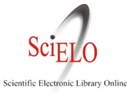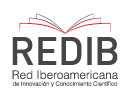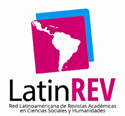Implementation of Virtual Assistants based on Generative Artificial Intelligence created in the EDU-INNOVA Laboratory to improve the Teaching of Teachers
DOI:
https://doi.org/10.21142/DES-1702-2025-0020Keywords:
Virtual Assistants, innovation, generative artificial intelligence, teaching management Professors, ChatGPT, higher educationAbstract
This exploratory study investigates the implementation of four virtual assistants designed to enhance the teaching management of university professors without compromising educational quality or student engagement. A mixed-methods approach, descriptive-exploratory in nature, was adopted using a non-experimental cross-sectional design. The study population consisted of full-time faculty members from the Department of Basic Courses who achieved the highest scores in their teaching performance evaluations. The Minimum Viable Product (MVP) sample included nine of these Universidad Científica del Sur’s faculty members, impacting a total of 1060 students. The results indicate significant improvements in optimizing faculty time and the quality of educational activities provided, demonstrating the potential of ChatGPT-based virtual assistants to optimize teaching management in higher education.
Downloads
References
Agus, F., Muhammad, I., Rabuandika, A., Dwi, K., Teapon, N. y Syahru, M. (2023). Bibliometric analysis: Artificial Intelligence (AI) in high school education. Journal Imiah Pendidikan dan Pembelajaran, 7(1), 112-123.
Ahmad, S. (2023). Generative AI: Definition, concepts, applications, and future prospects. TechRxiv. https://www.techrxiv.org/users/765209/articles/1016725-generative-ai-definition-concepts-applications-and-future-prospects
Ahmad, S. F., Rahmat, M. K., Mubarik, M. S., Alam, M. M. y Hyder, S. I. (2021). Artificial intelligence and its role in education. Sustainability, 13(22), 12902. https://doi.org/10.3390/su132212902
Bearman, M., Ryan, J. y Ajjawi, (2023) R. Discourses of artificial intelligence in higher education: a critical literature review. Higher Education, 86, 369-385. https://doi.org/10.1007/s10734-022-00937-2
Braun, V. y Clarke, V. (2019). Reflecting on reflexive thematic analysis. Qualitative Research in Sport, Exercise and Health, 11(4), 589-597. https://doi.org/10.1080/2159676X.2019.1628806
Burgos, L. M., Suárez, L. L. y Benzadón, M. (2023). Inteligencia artificial ChatGPT y su utilidad en la investigación: el futuro ya está aquí. Medicina (Buenos Aires), 83(3), 500-503. https://www.scielo.org.ar/scielo.php?script=sci_arttext&pid=S0025-76802023000500500&lng=es&tlng=es
Cárdenas, J. (2023). Inteligencia artificial, investigación y revisión por pares: escenarios futuros y estrategias de acción. Revista Española de Sociología, 32(4), a184. https://doi.org/10.22325/fes/res.2023.184
Centro de Innovación en Liderazgo Educativo. (2022). Design thinking para liderar la innovación educativa. https://www.ciled.udd.cl/wp-content/uploads/2022/08/Design-Thinking.2022.pdf
Chan, C. K. Y. y Lee, K. K. W. (2023) The AI generation gap: Are Gen Z students more interested in adopting generative AI such as ChatGPT in teaching and learning than their Gen X and millennial generation teachers? Smart Learning Environments, 10(60). https://doi.org/10.1186/s40561-023-00269-3
Chang, D., Lin, M., Hajian, S., Wang, Q. y Quincy, Q. (2023) Educational design principles of using ai chatbot that supports self-regulated learning in education: Goal setting, feedback, and personalization. Sustainability, 15(17), 12921. https://doi.org/10.3390/su151712921
Chávez, M., Labrada, E., Carbajal, E., Pineda, E. y Alatristre, Y. (2023). Inteligencia artificial generativa para fortalecer la educación superior. LATAM Revista Latinoamericana de Ciencias Sociales y Humanidades, 4(3), 767-784. https://doi.org/10.56712/latam.v4i3.1113
Chen, X. y Zhang, Y. (2023). Exploring generative AI-assisted feedback writing for educational settings. Journal of Educational Technology Research, 29(4), 112-126. https://typeset.io/papers/exploring-generative-ai-assisted-feedback-writing-for-qth1az4n8h
Cobos Velasco, J. C. (2023). El papel de la inteligencia artificial en la personalización del aprendizaje. Revista Ingenio Global, 2(1), 4-12. https://doi.org/10.62943/rig.v2n1.2023.57
Creswell, J. W. y Creswell, J. D. (2018). Research design. Qualitative, quantitative, and mixed methods approaches. (5.ª ed.). SAGE Publications. https://spada.uns.ac.id/pluginfile.php/510378/mod_resource/content/1/creswell.pdf
Díaz, J., Carbonel, G. y Picho, D. (2021). Los sistemas de gestión de aprendizaje (LMS) en la educación virtual. CIEG, Revista Arbitrada del Centro de Investigación y Estudios Gerenciales, 50, 87-95.
Diyab, A., Frost, R., Fedoruk, B. y Diyab, A. (2025). Engineered prompts in ChatGPT for educational assessment in software engineering and computer science. Education Sciences, 15(2), 156. https://doi.org/10.3390/educsci15020156
García-Peñalvo, F. J. (2024). Inteligencia artificial generativa y educación. Un análisis desde múltiples perspectivas. Education in the Knowledge Society, 25, e31942. https://doi.org/10.14201/eks.31942
Gimpel, H., Hall, K., Decker, S., Eymann, T., Lämmermann, L., Mädche, A., Röglinger, M., Ruiner, C., Schoch, M., Schoop, M., Urbach, N. y Vandrik, S. (2023). Unlocking the power of generative AI models and systems such as GPT-4 and ChatGPT for higher education: A guide for students and lecturers. Hohenheim Discussion Papers in Business, Economics and Social Sciences, 2. https://hdl.handle.net/10419/270970
González-González, C. (2023). El impacto de la inteligencia artificial en la educación: transformación de la forma de enseñar y de aprender. Revista Qurriculum, 36, 51-60. https://doi.org/10.25145/j.qurricul.2023.36.03
Granda Dávila, M. F., Muncha Cofre, I. J., Guamanquispe Rosero, F. V. y Jácome Noroña, J. H. (2024). Inteligencia Artificial: Ventajas y desventajas de su uso en el proceso de enseñanza aprendizaje. MENTOR. Revista de Investigación Educativa y Deportiva, 3(7), 202-224. https://doi.org/10.56200/mried.v3i7.7081
Guerrero-Roldán, A.-E., Rodríguez-González, M. E., Bañeras, D., Elasri-Ejjaberi, A. y Cortadas, P. (2021). Experiences in the use of an adaptive intelligent system to enhance online learners’ performance: a case study in Economics and Business courses. International Journal of Education Technology Higher Education, 18(36), 1-27. https://doi.org/10.1186/s41239-021-00271-0
Gupta, R. y Sharma, P. (2023). Prompt engineering and transformer-based question generation: Innovations and applications. Journal of Natural Language Processing, 18(2), 245-260. https://typeset.io/papers/prompt-engineering-and-transformer-based-question-generation-3pj3u5p55v
Harrison, H., Birks, M., Franklin, R. y Mills, J. (2019). Case study research: Foundations and methodological orientations. Forum: Qualitative Social Research, 18(1). https://doi.org/10.17169/fqs-18.1.2655
Hemachandran, K., Verma, P., Pareek, P., Arora, N., Rajesh Kumar, K., Ahanger, T., Pise, A. y Ratna, R. (2022). Artificial Intelligence: A universal virtual tool to augment tutoring in Higher Education. Computational Intelligence and Neuroscience, 2022, 1410448, https://doi.org/10.1155/2022/1410448
Instituto Nacional de Tecnologías Educativas y Formación del Profesorado (INTEF). (2022). Marco de Referencia de la Competencia Digital Docente. https://intef.es/wp-content/uploads/2022/03/MRCDD_V06B_GTTA.pdf
Instituto Nacional de Tecnologías Educativas y Formación del Profesorado (INTEF). (2024). Proyecto del Marco de Competencias en Inteligencia Artificial para estudiantes y profesores. https://www.unesco.org/sites/default/files/medias/fichiers/2024/07/UNESCO-Draft-AI-competency-frameworks-for-teachers-and-school-students_0.pdf
Jones, R. y Smith, A. (2023). Generative artificial intelligence and the economics of innovation. Journal of Economic Research, 52(3), 89-102. https://typeset.io/papers/generative-artificial-intelligence-and-the-economics-of-grtoo4cip1
Lo, C. K. (2023). What is the impact of ChatGPT on education? A rapid review of the literature. Education Science, 13(4), 410. https://doi.org/10.3390/educsci13040410
Magallanes, K., Aguas, J., Freire, R. y Plúas, L. (2023). La inteligencia artificial aplicada en la innovación educativa en el proceso de enseñanza y aprendizaje. Latam, 4(2). https://doi.org/10.56712/latam.v4i2.706
Molinero, M. y Chavez, U. (2019). Herramientas tecnológicas en el proceso de enseñanza-aprendizaje en estudiantes de educación superior. Revista Iberoamericana para la Investigación y el Desarrollo Educativo, 10(19). https://www.ride.org.mx/index.php/RIDE/article/view/494
Mungai, B. K., Omieno, P. K. K., Egessa, M. y Manyara, P. N. (2024). AI chatbots in LMS: A pedagogical review of cognitive, constructivist, and adaptive principles. Engineering And Technology Journal, 9(8), 4709-4715. https://doi.org/10.47191/etj/v9i08.15
Nazari, M. y Saadi, G. (2024). Developing effective prompts to improve communication with ChatGPT: a formula for higher education stakeholders. Discover Education, 3(45). https://doi.org/10.1007/s44217-024-00122-w
Ninaus, M. y Sailer, M. (2022). Closing the loop – The human role in artificial intelligence for education. Frontiers In Psychology, 13. https://doi.org/10.3389/fpsyg.2022.956798
Paskova, A. A. (2024). Potentials of integrating generative artificial intelligence technologies into formative assessment processes in higher education. Vestnik Majkopskogo Gosudarstvennogo Tehnologiceskogo Universiteta, 2, 98-109. https://doi.org/10.47370/2078-1024-2024-16-2-98-109
Perez, I., Builes, L. y Rivera, A. (30 de abril del 2017). Estrategias para implementar las TIC en el aula de clase como herramientas facilitadoras de la gestión pedagógica. https://recursos.educoas.org/publicaciones/estrategias-para-implementar-las-tic-en-el-aula-de-clase-como-herramientas
Poblete, M., Bezanilla, M. J., Fernández-Nogueira, D. y Campo, L. (2016). Formación del docente en competencias genéricas: un instrumento para su planificación y desarrollo. Educar, 52(1), 71-91. https://educar.uab.cat/article/view/v52-n1-poblete-bezanilla-fern%c3%a1ndez-campo
Romero, M., Reyes, J. y Kostakos, P. (2024). Generative Artificial Intelligence in Higher Education. En M. Romero y P. Kostakos (eds.), Applications of Artificial Intelligence in Higher Education (pp. 45-68). Springer. https://doi.org/10.1007/978-3-031-55272-4_10
Singh, P. P. (2024). The impact of the development of Artificial Intelligence with generative ability on education. Journal of Research in Vocational Education, 6(6), 46-52. https://doi.org/10.53469/jrve.2024.6(06).10
Villamil, C., Ronny, J., Flores, P., Suarez, J. y Cedeño, P. (2024). La revolución de la inteligencia artificial en la educación superior: impacto, beneficios y desafíos. Arandu UTIC, 11(1), 327-339. https://doi.org/10.69639/arandu.v11i1.218
Xu, W. y Ouyang, F. (2022). A systematic review of AI role in the educational system based on a proposed conceptual framework. Education and Information Technologies, 27, 4195-4223 https://doi.org/10.1007/s10639-021-10774-y
Downloads
Published
Issue
Section
License

Esta obra está bajo una licencia http://creativecommons.org/licenses/by-nc-sa/4.0/



















